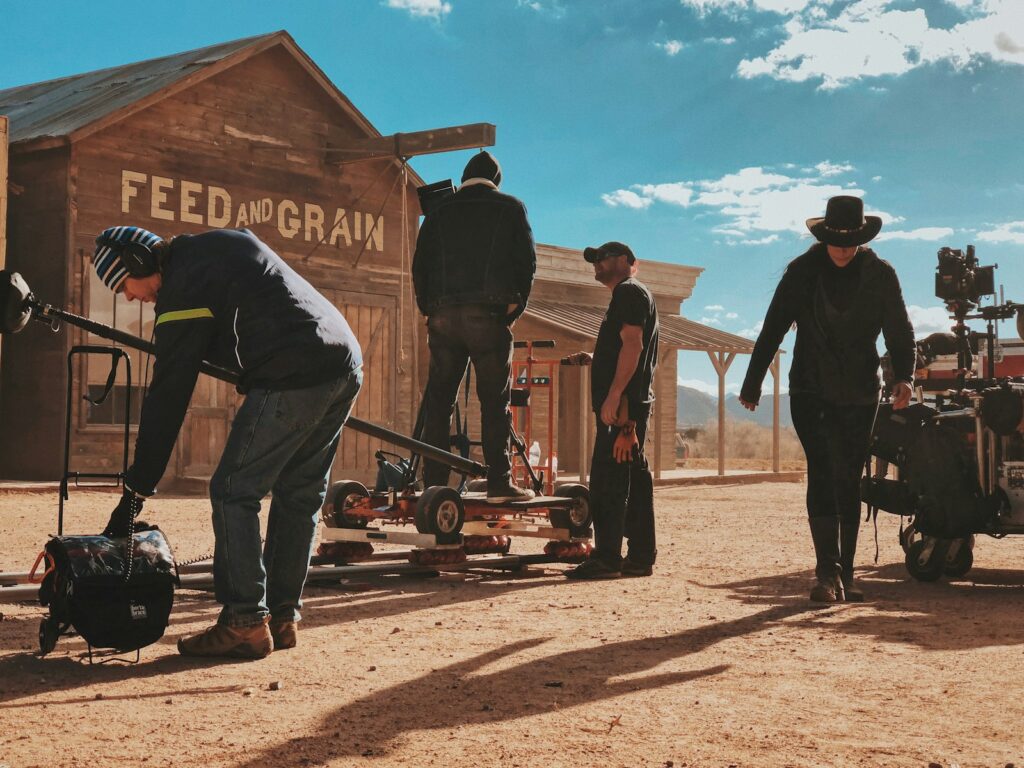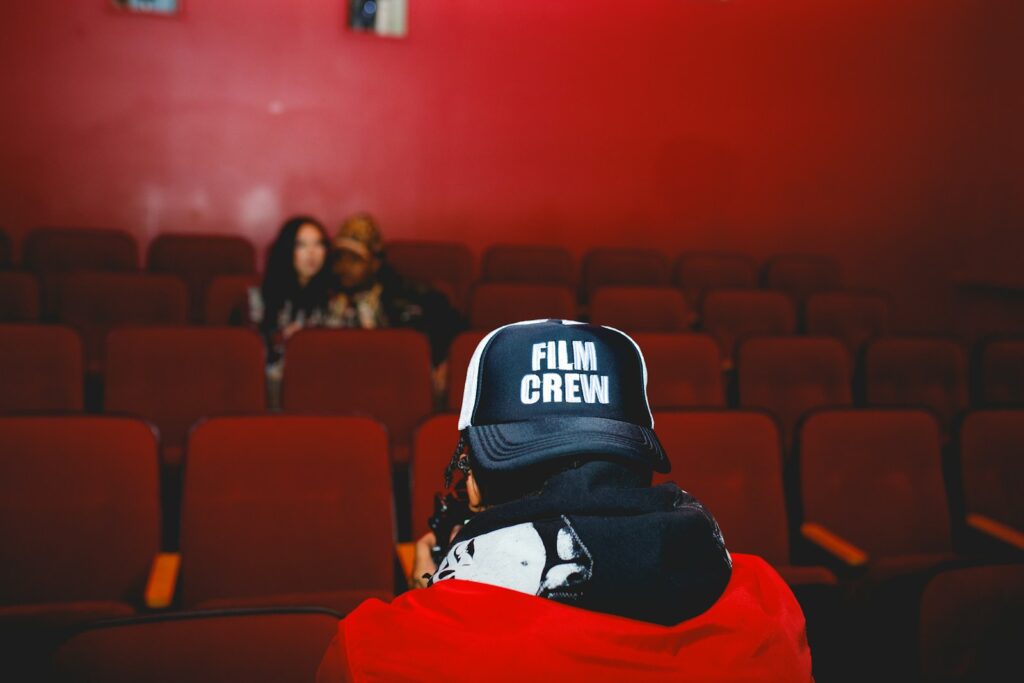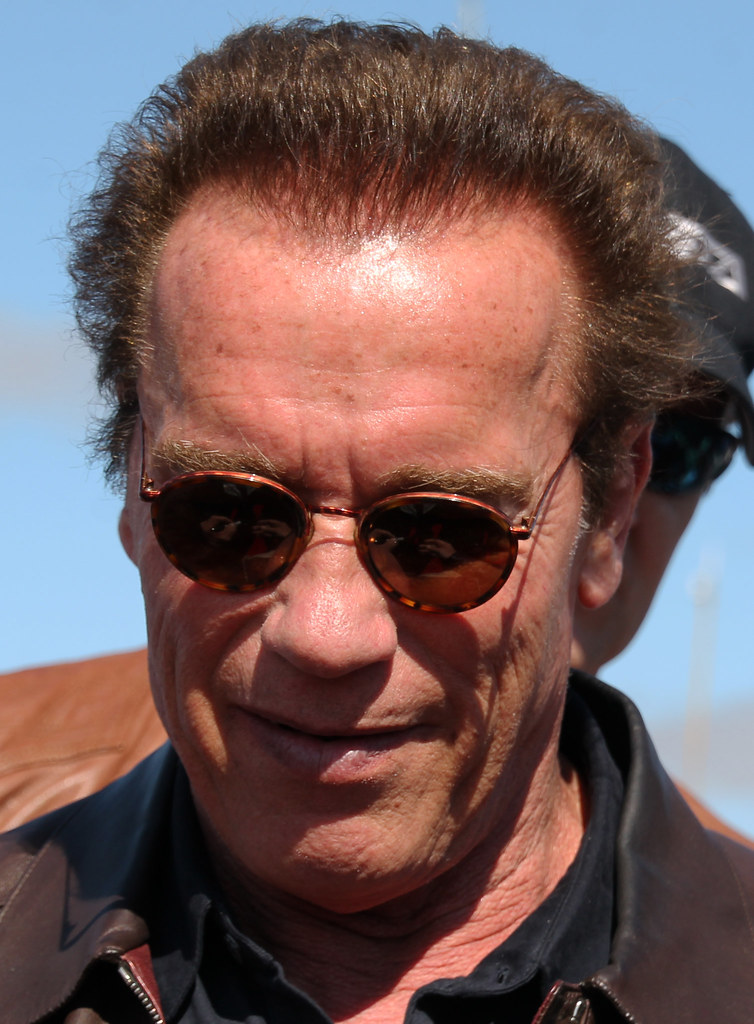
In the fast-paced, ever-evolving world of Hollywood, where the brightest stars often burn brightest on social media, one familiar face recently made a quiet but profound exit, only to thoughtfully re-emerge with a renewed sense of purpose. Dacre Montgomery, the Australian actor who captured global attention as the intense, enigmatic Billy Hargrove in Netflix’s cultural phenomenon “Stranger Things,” embarked on a five-year hiatus from the relentless glare of the entertainment industry. Now, at 30 years old, Montgomery is candidly sharing the deeply personal and reflective reasons behind his decision to step away at the height of his fame, offering a rare glimpse into the mind of an artist seeking authenticity amidst the clamor.
His journey back to the public eye isn’t merely a return; it’s a carefully considered re-entry, marked by a commitment to projects that resonate with his personal truth and a bold step into the challenging world of directing. Montgomery’s narrative provides a compelling case study on the changing nature of celebrity, the intrinsic value of creative control, and the courage it takes to redefine success on one’s own terms. His story is one of self-discovery, highlighting the importance of introspection and the pursuit of meaningful work over the fleeting allure of conventional stardom.
As we delve into Dacre Montgomery’s experiences, we’ll explore the pivotal moments and deeply personal motivations that led him to temporarily retreat from the industry that made him a household name. His reflections illuminate not just his individual path, but also broader shifts within Hollywood itself, offering valuable insights into the pressures faced by contemporary actors and the profound desire for a more grounded, authentic career. From the erosion of mystery by social media to his relentless pursuit of creative control, Montgomery’s honesty paints a vivid picture of an artist navigating the complexities of modern fame.

1. **The Mystery of Stardom Drained by Social Media: A Core Reason for Departure**Dacre Montgomery’s decision to step away from Hollywood for half a decade was deeply rooted in his observations about the profound changes in the industry, particularly concerning the impact of social media on celebrity. He articulated this perspective with striking clarity in an interview, stating, “I think things have changed. Traditional Hollywood stars existed because there was mystery… Social media has done away with that. That’s a large part of why I dropped off the map for the last five years.” This statement serves as a cornerstone of his explanation, revealing a thoughtful critique of modern fame.
For Montgomery, the constant visibility and accessibility offered by social media platforms fundamentally altered the essence of being a star. He cherished the enigmatic quality that once defined actors, allowing audiences to immerse themselves fully in a performance without the backdrop of a meticulously curated, or often overexposed, personal brand. The advent of pervasive social media, in his view, dismantled this crucial element of mystery, creating an environment where public perception is often shaped more by online presence than by artistic work. This loss of ‘mystery’ became a significant factor in his decision to consciously remove himself from that landscape.
His choice to “drop off the map” was not merely a reaction but a deliberate act of self-preservation, an attempt to reclaim a degree of privacy and control over his own narrative that he felt was being eroded. In an age where every aspect of an actor’s life can be scrutinized and commented upon, Montgomery sought to create a space for himself away from the incessant demands of maintaining an online persona. This deliberate detachment allowed him to step back and observe the industry from a distance, reinforcing his belief that a more traditional, less public approach to his craft was essential for his well-being and artistic integrity.

2. **The Personal Cost of Performance: Giving a Piece of Himself to Every Role**Beyond the broader critique of social media’s impact on fame, Montgomery’s hiatus was also driven by a deeply personal and emotional toll that acting had taken on him. He openly shared the intensity of his commitment to his craft, explaining, “I’ve given a piece of myself to every role I’ve played and that’s largely why I’ve taken time off.” This candid admission highlights the profound emotional investment he pours into his characters, suggesting that such dedication, while vital for powerful performances, can also be incredibly draining over time.
Each character, for Montgomery, wasn’t just a role to be played, but an experience to be lived, leaving a lasting imprint on his psyche. This immersive approach, while yielding critically acclaimed performances, also demanded a significant part of his inner self. The continuous cycle of embodying new personalities, exploring complex emotions, and then detaching from them can be exhausting, leading to a need for psychological and emotional recuperation. His decision to take a break was a necessary act of self-care, allowing him to replenish his emotional reserves and reconnect with his own identity outside of the characters he portrayed.
This sentiment resonates with many artists who speak of the blurring lines between their personal selves and their professional roles. For Dacre, the intensity of his portrayal of Billy Hargrove, a character fraught with aggression and vulnerability, would undoubtedly have been a particularly demanding experience. Stepping away provided him with the space and time needed to process these experiences, ensuring that he could continue to approach his work with the same level of commitment without sacrificing his personal well-being. It was an essential pause to recalibrate and protect the very ‘piece of himself’ he so generously offers to his art.
Read more about: Swing into Luxury: A Deep Dive into Phil Mickelson’s Elite Rides and Lavish Lifestyle Beyond the Golf Course!

3. **A Quest for Creative Autonomy: Gaining More Control Over His Career**A significant driving force behind Dacre Montgomery’s time away from the industry was a profound desire to exert greater control over his professional path. He articulated this shift in his priorities, stating, “Lately, there’s been a lot of personal reflection about what I want in my career. I’m trying to gain a bit more control over where and what I’m working on.” This wasn’t merely about choosing roles, but about shaping the very trajectory and nature of his work.
In the early stages of a successful acting career, particularly after a breakout role in a massive franchise like “Stranger Things,” actors often find themselves swept up in a tide of opportunities, not all of which may align perfectly with their long-term artistic vision. Montgomery’s reflection period allowed him to step back from this reactive mode and consciously define what truly mattered to him in his work. This meant moving beyond merely accepting roles that came his way and instead actively seeking out projects that resonated with his values and offered significant creative challenges.
This quest for control extended beyond just acting roles; it encompassed a broader ambition to engage with storytelling in a more comprehensive manner. His interest in directing, as we will explore, is a direct manifestation of this desire for greater creative autonomy. By stepping into a directorial role, Montgomery can influence the narrative, tone, and overall vision of a project from its inception, a level of control that is rarely afforded to actors. His time off was therefore not just a break, but a strategic period of introspection and planning for a career built on intention and personal resonance.

4. **Living His Truth, Beyond Competition: A Philosophy of Authenticity**Central to Dacre Montgomery’s decision to step away and his subsequent return is a deeply ingrained philosophy of authenticity and a rejection of the competitive aspects of Hollywood. He encapsulated this approach by saying, “I’m not trying to compete with anyone else, I’m living my truth — and hopefully being able to pay the rent while I’m doing it.” This statement is powerful in its simplicity, revealing a grounding perspective that prioritizes personal integrity over the often-cutthroat nature of the entertainment industry.
In a business where actors are constantly vying for roles, recognition, and public adoration, Montgomery’s focus on ‘living his truth’ represents a refreshing departure from conventional metrics of success. It suggests a desire to build a career based on intrinsic satisfaction and genuine connection to his work, rather than external validation or comparison with peers. This mindset allows him to make choices that are aligned with his personal values, even if those choices mean taking a less conventional path or stepping out of the spotlight for an extended period.
The pragmatic addition of “hopefully being able to pay the rent while I’m doing it” also underscores a humble and relatable aspect of his ambition. It acknowledges the practical realities of pursuing an artistic career while firmly anchoring his motivations in a desire for meaningful work, not just financial gain or fleeting fame. This emphasis on authenticity and living genuinely forms the bedrock of his career decisions, guiding him towards projects and roles that truly speak to him rather than those dictated by industry trends or competitive pressures.

5. **Reflecting on the Billy Hargrove Phenomenon: His Breakout Role and Dramatic Exit**Dacre Montgomery’s most widely recognized role, and indeed his breakout performance, was as Billy Hargrove in “Stranger Things.” He joined the cast in the show’s second season in 2017, quickly making an indelible mark with his portrayal of the abusive, yet deeply complex, older step-brother of Max Mayfield, played by Sadie Sink. His performance garnered critical acclaim, earning him nominations, including an MTV Movie & TV Award, and contributing to two Screen Actors Guild Award nominations for Outstanding Performance by an Ensemble in a Drama Series for his castmates.
Billy Hargrove’s character arc was one of intense dramatic impact. Introduced as a volatile and menacing presence, Billy evolved through seasons two and three, culminating in a poignant and heroic sacrifice at the end of the third season. This dramatic exit, where his character gave his life to save Eleven, solidified his place in the show’s lore and in the hearts of many fans. The intensity and nuance Montgomery brought to the role allowed audiences to see beyond Billy’s harsh exterior, revealing the pain and vulnerability beneath, and made his departure a truly memorable moment in the series.
Despite his character’s death in season three, one source indicates he ‘reprised his role in seasons 3 and 4’, though other contexts specify his character’s death at the end of season three and that he is not expected to appear in season five. The consensus points to his primary involvement being in seasons two and three, with the dramatic conclusion of his character arc in the latter. His powerful performance as Billy Hargrove remains a defining moment in his career, showcasing his ability to inhabit complex, challenging characters and leave a lasting impression on a global audience, making his subsequent withdrawal from the spotlight even more surprising and intriguing.

6. **Early Career Foundations: From ‘Fred’ to the ‘Red Ranger’**While “Stranger Things” catapulted Dacre Montgomery to international fame, his acting journey began much earlier, laying a diverse foundation for his craft. He made his acting debut in 2010, appearing as Fred in the film “Betrand the Terrible.” This early role provided him with initial exposure to the film industry and the practicalities of a set, marking the very beginning of his professional pursuits in acting. These formative experiences are crucial for any young actor, offering lessons that extend far beyond the screen.
Years later, in 2017, Montgomery took on a significantly larger and more prominent role, starring as Jason Scott, the leader of the Power Rangers, in the “Power Rangers” film reboot. This role showcased his ability to lead a major franchise film and connected him with a wider, younger audience. Playing the iconic Red Ranger involved physical demands, character development, and working within the structure of a large-scale production, further honing his skills and preparing him for subsequent, more complex roles.
Beyond these, Montgomery also appeared in other films around the time of his “Stranger Things” ascendancy, including “Better Watch Out” in 2017. These diverse early projects, from independent films to blockbuster reboots, demonstrate a breadth of experience that belies his relatively young age when he gained widespread recognition. They illustrate a consistent dedication to building his acting resume and refining his technique before his breakout role allowed him to truly explore the depth of his talent.

7. **A Five-Year Retreat: The Impact of Dropping Off the Map**The most striking aspect of Dacre Montgomery’s journey is the five-year period during which he consciously “dropped off the map.” This extended hiatus, following his immense success on “Stranger Things,” was a deliberate act, deeply intertwined with his desire for privacy and creative control. It was a period not of idleness, but of profound personal reflection and reassessment, allowing him to step back from the intense public scrutiny and the relentless demands of a burgeoning Hollywood career.
During this time, his public appearances were notably scarce, and his social media presence, while maintained, was not used to fuel the traditional celebrity machine. This retreat allowed him to gain perspective on what he truly wanted from his life and career, away from the external pressures and expectations. It was a necessary pause to ensure that his future choices were driven by internal motivations rather than external opportunities or the desire to maintain a certain level of fame.
The impact of this period is evident in his current outlook. The reflection allowed him to articulate clearly his desires for authenticity and meaningful work, and to prepare for a return that is on his own terms. His return with projects like “Went Up the Hill” and his directorial debut, “The Engagement Party,” are direct outcomes of this time of introspection, signaling a new chapter where creative integrity and personal truth take precedence over the fleeting nature of celebrity. It was a pivotal five years that shaped the artist he is becoming.
As Dacre Montgomery steps back into the spotlight, his return is not merely a resumption of his acting career but a carefully orchestrated re-entry, driven by a renewed sense of purpose and a profound commitment to authentic storytelling. The period away has clearly clarified his artistic intentions, leading him toward projects that resonate deeply with his personal philosophy and offer him the creative autonomy he so craved. This new chapter marks a significant evolution for the actor, who is now not only exploring diverse acting roles but also venturing into the challenging world of directing. His journey is a testament to the power of introspection and the courage to redefine success on one’s own terms, inspiring a more grounded and intentional approach to creative work in Hollywood.

8. **”The Engagement Party”: Stepping Behind the Camera for His Directorial Debut**Beyond his return to acting, Dacre Montgomery is making an even bolder statement about his creative aspirations: he’s stepping behind the camera to make his directorial debut. “The Engagement Party,” announced in September 2024, represents a monumental leap for Montgomery, a clear manifestation of his previously articulated desire to gain greater control over his professional path and engage with storytelling in a more comprehensive manner. This project isn’t just a new role; it’s a new chapter where he’s at the helm.
This move into directing is a direct outcome of the personal reflection he undertook during his hiatus, where he reassessed what truly mattered in his career. Taking on directorial duties allows him to influence the narrative, tone, and overall vision of a project from its very inception, a level of creative autonomy that is rarely afforded to actors, especially early in their careers. It’s a testament to his seriousness about shaping his artistic legacy and bringing his unique perspective to the fore.
Montgomery expressed his profound honor regarding this undertaking, stating to Deadline, “I could not be more honoured to be directing The Engagement Party, a film with an extremely important and timely message.” He further emphasized his excitement about his collaborators, adding, “I’m equally thrilled to have such a wonderful team of collaborators to help bring this story to life.” This highlights not only his passion for the project’s theme but also his collaborative spirit in building a strong creative team.
9. **A Dual Role: Directing and Starring in “The Engagement Party”**What makes “The Engagement Party” even more intriguing is Montgomery’s evolving involvement. While he initially indicated he would remain solely behind the camera, focusing on directing, he has since decided to take on a role within the film. This decision speaks volumes about his deep connection to the material and his willingness to fully immerse himself in his own creative vision, blurring the lines between director and performer in a truly personal way.
He describes “The Engagement Party” as “a four-hander, a chamber piece like a play,” emphasizing its intimate and character-driven nature. The drama unfolds in a single location over the course of one night, centering entirely on the intricate dynamics between its four characters. This focused approach allows for an intense exploration of human relationships and emotions, perfectly suited to Montgomery’s empathetic and deeply committed acting style.
His initial plan to only direct, as he shared with The Daily Telegraph in 2024, underscores his seriousness about filmmaking as a distinct craft. However, his subsequent decision to join the cast suggests an irresistible pull to inhabit the world he’s creating, perhaps finding a character that resonated so strongly he couldn’t resist performing it himself. It’s a powerful statement of belief in his own project, demonstrating his complete artistic investment.

10. **Mentorship and Learning: Joel Edgerton as a Guiding Light**Dacre Montgomery’s journey into directing is not an isolated endeavor; it’s one informed by admired predecessors and supported by a strong network. He openly credits acclaimed Australian actor and filmmaker Joel Edgerton as a significant role model, particularly for Edgerton’s successful transition from acting to directing. This acknowledgment reveals Montgomery’s thoughtful approach to his career expansion, seeking wisdom from those who have paved similar paths.
The connection runs even deeper, as Joel’s brother, the accomplished filmmaker Nash Edgerton, is producing “The Engagement Party.” This collaboration signifies a supportive environment, one where Montgomery can draw upon seasoned experience and mentorship as he navigates the complexities of his directorial debut. Such guidance is invaluable for an artist taking on new creative challenges and underscores his commitment to learning and growing in this demanding new role.
Montgomery’s humility and open-mindedness shine through in his approach to learning. He embraces challenges and setbacks as essential to artistic development, famously stating, “Not to be too sadomasochistic about it, but I really believe failure and rejection are the best form of learning.” This perspective highlights a resilient spirit, viewing every experience, positive or negative, as an opportunity for profound growth, an essential trait for a budding director.

11. **The Core of His Craft: A Filmmaking Philosophy of Impact and Catharsis**At the heart of Dacre Montgomery’s re-entry into the industry is a deeply considered filmmaking philosophy, one that prioritizes meaningful impact and emotional resonance over superficial success. He is consciously choosing projects that he believes have “something really important to say,” a guiding principle that informs both his acting and directorial pursuits. This dedication to purposeful storytelling is a clear departure from the more reactive career path he experienced earlier.
His vision for his work extends to providing audiences with a sense of catharsis, an emotional release or purification that he believes great art can offer. He acknowledges that such deeply impactful stories may not appeal to everyone, calling films like “Went Up the Hill” “divisive.” However, this doesn’t deter him; instead, it reinforces his commitment to those who will connect with the material on a profound level.
Montgomery articulates this sentiment beautifully: “And that’s why you make these movies, right? Because it only has to impact one person in the right way to work. And that’s really what I’m really trying to mine in my career, is being a part of projects like that.” This powerful statement encapsulates his dedication to the transformative power of film, suggesting a focus on quality and depth that transcends commercial metrics.
Furthermore, his belief that “failure and rejection are the best form of learning” speaks to his resilience and growth mindset. In an industry known for its highs and lows, this philosophy allows him to approach challenges not as roadblocks, but as crucial steps on his artistic journey. It’s a refreshing perspective that grounds his ambitious artistic endeavors in practical wisdom and continuous self-improvement.
12. **A Fond Look Back: His Enthusiasm for the Duffer Brothers’ Future**While Dacre Montgomery’s character, Billy Hargrove, met a dramatic end in “Stranger Things” season three, and he is not expected to appear in the upcoming fifth and final season, his connection to the show’s legacy remains strong and remarkably positive. Rather than dwelling on his own departure, Montgomery expresses genuine excitement for the series’ creators, Matt and Ross Duffer, to conclude their epic story.
Speaking with ScreenRant, he shared his anticipation for the Duffer Brothers to finally wrap up the show, stating, “I’m more excited than anything for it to be over for the Duffer Brothers, because I know they have so many other awesome stories that, years ago, they were telling me about.” This insight reveals a supportive and understanding colleague, appreciative of the immense creative energy the creators have poured into the show.
Montgomery empathizes with the immense demands of helming such a global phenomenon, recognizing that the Duffer Brothers have likely put other passion projects on hold. He added, “I’m like, ‘Guys, you haven’t had the bandwidth to make this project.’ So, that’s my most exciting thing.” His perspective highlights a deep respect for the creative process and a desire to see his former collaborators flourish in new artistic endeavors, beyond the confines of Hawkins, Indiana.

13. **Championing Talent: His Hopes for Sadie Sink’s Continued Success**Montgomery’s positive outlook extends beyond the Duffer Brothers to his former “Stranger Things” castmates, particularly Sadie Sink, who played his stepsister, Max Mayfield. Their on-screen dynamic was famously intense and complex, but off-screen, a clear camaraderie and mutual respect exist. Montgomery has openly championed Sink’s talent and future, demonstrating a supportive spirit that celebrates the success of others.
He expressed his genuine desire to witness Sink’s continued growth in the industry, telling ScreenRant, “She’s such a talented actress that’s had some amazing opportunities over the last few years.” This reflects an appreciation for her artistic journey and her ability to captivate audiences with her performances, even outside the massive “Stranger Things” universe. It’s a wonderful example of professional generosity.
Montgomery further elaborated on his hopes for her career, saying, “I really, more than anything, just want her to see her continue to do so many cool performances outside of Stranger Things, because I just think that she’s so talented, so professional, so driven — all those sorts of things.” This heartfelt endorsement underscores his belief in her capabilities and his wish for her to continue finding roles that challenge and fulfill her, echoing his own quest for meaningful work.

14. **A Redefined Path Forward: Dacre Montgomery’s Vision for His Future**Dacre Montgomery’s journey, from breakout star to thoughtful artist, culminates in a clear and compelling vision for his future in Hollywood. His return is not about chasing fleeting fame or recapturing past glory; it is about building a career rooted in authenticity, creative control, and profound impact. The years away have afforded him a clarity of purpose that now defines his every professional decision.
His commitment to directing, in particular, is unwavering. While taking on an acting role in his directorial debut, “The Engagement Party,” he previously stated to The Daily Telegraph, “I’m not looking for this to be an engine for my acting career at all.” He emphasized his seriousness, adding, “I want to direct, and I’m serious about directing, so I’m taking it seriously and not trying to use it as something else.” This strong declaration, further grounded by the fact that both his parents work in the film industry, suggests a lifelong connection and deep-seated respect for the craft of filmmaking.
Montgomery’s story offers a compelling blueprint for navigating the complexities of modern fame. It’s a narrative of an artist who dared to step away, to reflect, and to return with a redefined sense of self and purpose. His commitment to projects with “important to say” messages, his pursuit of catharsis for audiences, and his embrace of learning through all experiences chart a course that promises not just artistic output, but a legacy of meaningful, impactful work.
As Dacre Montgomery continues this exciting new chapter, he inspires us all to consider what truly matters in our own pursuits. His journey is a powerful reminder that sometimes, the bravest act is to redefine success on our own terms, choosing depth and authenticity over the easy allure of the well-trodden path. We can’t wait to see the stories he tells, both in front of and behind the camera, as he truly lives his artistic truth.





